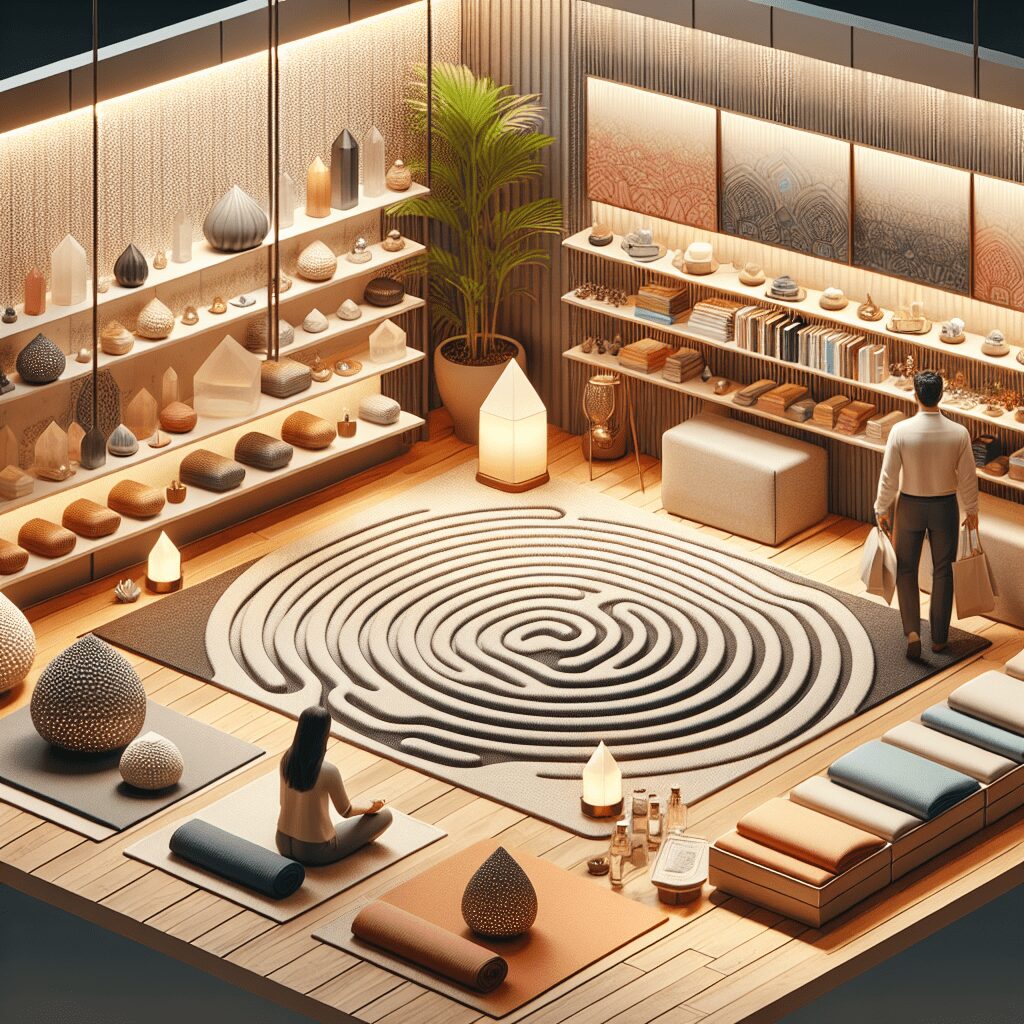
Prioritize your mental well-being daily. Enhance your life by nurturing your mental health with the Smart Meditation app. Break free from stress, alleviate anxiety, and enhance your sleep quality starting today.
Are Anxiety And Depression Linked?
Unraveling the Tangled Web: Are Anxiety and Depression Linked?
At first glance, anxiety and depression might seem like two sides of the same coin, or perhaps distant cousins at best. After all, they’re both frequent flyers on the mental health spectrum and seem to share a few family traits. However, the connection between anxiety and depression is more than skin deep, weaving a complex tapestry that psychologists and laymen alike have been trying to decode for years.
The Symbiotic Relationship
Let’s break it down, shall we? Anxiety, with its jittery hands and racing heart, is like the body’s alarm system gone haywire, constantly whispering (or sometimes shouting) warnings of impending doom. Depression, on the other hand, is the heavy blanket that stifles motivation and dims the light of joy. At first glance, they seem like opposites – one characterized by an overabundance of worry, the other by a profound absence of interest or pleasure.
But here’s the kicker – they often crash the same parties. Studies suggest that if you’re dealing with one, you’re much more likely to bump into the other. In fact, research indicates that nearly half of those with major depression also suffer from severe and persistent anxiety. It’s a classic case of “misery loves company”, but why is this the case?
A Deeper Dive into the Connection
-
Shared Biological Pathways: Peek under the hood, and you’ll find that anxiety and depression share some common wiring. Similar neurotransmitters, including serotonin and dopamine, play pivotal roles in both conditions. It’s like finding out two seemingly different roadways actually share the same underground tunnel.
-
Stress and Trauma: Life’s curveballs don’t discriminate. Chronic stress and traumatic events can set the stage for both anxiety and depression. It’s as if the brain keeps replaying the stress highlights, unsure whether to hit fast forward (anxiety) or pause (depression).
-
Behavioral Patterns: Anxiety might lead the dance with its constant what-ifs, eventually tiring out the mind to the point of depression. Alternatively, the isolation and low energy of depression can amplify fears and anxieties, creating a self-feeding cycle. It’s a bit like a seesaw – with both conditions taking turns in the air.
So, what does all this mean for those navigating the choppy waters of anxiety, depression, or both? Understanding the link can be a game-changer. It’s not just about treating the symptoms that shout the loudest but addressing the underlying currents pulling the strings.
Strategies for Untangling the Knot
Breaking free from the anxiety-depression entanglement isn’t a cakewalk, but it’s far from impossible. Here are a few strategies that might come in handy:
-
Knowledge is Power: Simply understanding that these two can be interconnected offers a new perspective. You’re not fighting a hydra-headed monster; it’s more like untangling a knot.
-
Seek Professional Help: A therapist can be a guide in the murky waters, offering strategies like cognitive-behavioral therapy (CBT) that have proven effective for both conditions.
-
Lifestyle Tweaks: Never underestimate the power of healthy habits. Regular exercise, a balanced diet, and ample sleep can bolster your defenses against both anxiety and depression.
-
Mindfulness and Meditation: These practices can help anchor you in the present, mitigating anxiety’s what-ifs and depression’s what-abouts.
In the grand scheme of things, understanding the complex relationship between anxiety and depression paves the way for more nuanced approaches to mental health. Rather than treating these conditions as distinct entities, recognizing their intertwined nature allows for more holistic healing. So, the next time you find yourself wondering whether anxiety and depression are linked, remember: they’re more connected than you might think, but there’s a map to navigate through their labyrinth.




